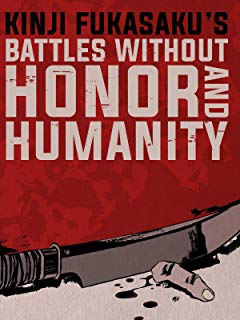
The history and study of film music is largely a European and American centric one. Even today, most Western audiences are only familiar with composers from these two areas, largely ignoring the film music produced throughout the rest of the world. Take Japan, a country whose film industry began in 1897 and releases hundreds of movies a year. Its classics like Seven Samurai or Rashomon are among the best films of all time. Yet while director Akira Kurosawa is world renown, his longtime composer Fumio Hayasaka is not.
Similarly, Battles Without Honor and Humanity is widely considered to be one of Japan’s greatest films, but its composer, Toshiaki Tsushima, has gone unrecognized in the west. Battles… tells the blood-drenched story of Yakuza families in postwar Japan. The film is surprisingly graphic, with rape, mutilation, and countless violent murders. But the film, through Tsushima’s score, treats its graphic content in a very calm, matter of fact way.
When a major character dies, the camera freezes and Tsushima’s theme plays, a mixture of rock and jazz, with blaring horns, driving basslines, and the occasional electric guitar lead. Rather than somber or victorious, it is energetic but neutral, a sober approach reminiscent of a nightly news bulletin. This world neither fears nor celebrates murder. Instead, it simply recognizes it as an unavoidable, everyday aspect of Yakuza life.
Were it not for the rhythmic taiko drums that add percussive depth and increase tension, Tsushima’s score would fit in many stylish 60s and 70s American or European films. And yet, neither Tsushima nor his score have received the respect and acclaim they deserve.
